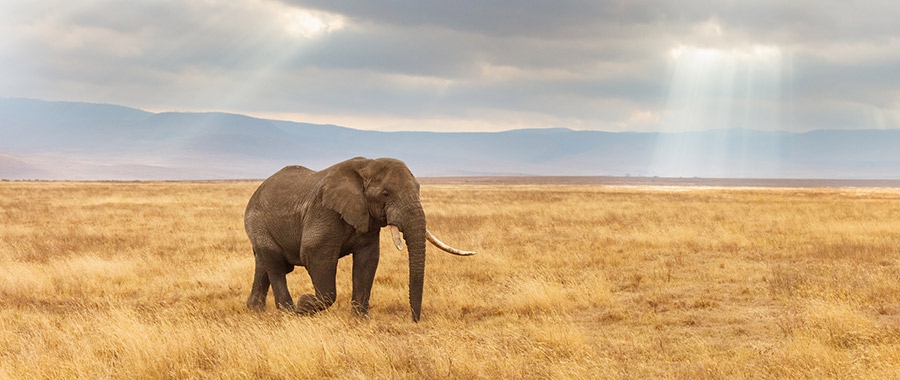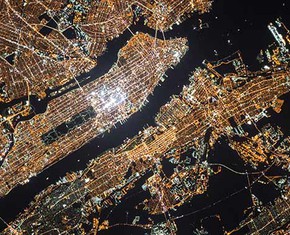The views expressed in our content reflect individual perspectives and do not represent the authoritative views of the Baha'i Faith.
Right now, at this very moment, life on Earth is experiencing an unprecedented event—a mass extinction of plant and animal species:
We have driven the rate of biological extinction, the permanent loss of species, up several hundred times beyond its historical levels, and are threatened with the loss of a majority of all species by the end of the 21st century. – Peter Raven, former president of the American Association for the Advancement of Science (AAAS), in the foreword to their publication AAAS Atlas of Population and Environment, 2016.
Wilson definitely does not represent a sole voice calling out in the wilderness—an overwhelming scientific consensus backs up his findings. Multiple peer-reviewed scientific studies, like a 2004 report on mass extinction published in the journal Nature, and numerous research papers authored by members of the prestigious International Union for the Conservation of Nature (IUCN) about their annual Red List of threatened species all support this basic biological fact. That research raises one paramount question:From every continent and region of the world, scientists have issued dire warnings about this massive die-off in species diversity. The highly respected Harvard biologist, researcher, theorist, naturalist, author and Pulitzer Prize winner E.O. Wilson calculated, in his 2002 book The Future of Life, that if the current rate of human disruption of the biosphere continues, half of Earth’s higher lifeforms will be extinct by the end of this century. Stop and think about that for a moment: half of Earth’s higher lifeforms.
… we really should be considering the moral implications of what we’re doing. What kind of a species are we that we treat the rest of life so cheaply? There are those who think that’s the destiny of Earth: We arrived, we’re humanizing the Earth, and it will be the destiny of Earth for us to wipe humans out and most of the rest of biodiversity. But I think the great majority of thoughtful people consider that a morally wrong position to take, and a very dangerous one. – E.O. Wilson.
If you’d like to read more in-depth factual information about this frightening reality, you now have a wide array of terrific books to choose from. One of the best, Elizabeth Kolbert’s The Sixth Extinction, An Unnatural History, also won the Pulitzer Prize. In it, Kolbert discusses the reasons so many people can’t conceive of humanity as responsible for destroying the ecological integrity of our planet—and the reasons why it’s happening, despite our mental, psychological and spiritual denial.
In other words, the natural world we love so much could be altered or even destroyed forever.
No question about it—that’s a hard concept to contemplate. It’s easier and simpler to just go about our daily lives and block this stark, uncomfortable reality out of our minds. After all, species extinction doesn’t really seem to have many immediate, short-term implications for tomorrow or day after tomorrow. It’s a gradual, long-term process, taking place now but with delayed consequences.
From a Baha’i perspective, what causes this mass extinction? Since the Baha’i teachings say that man is organic with the world, what is it in our inner lives that has begun to produce such chaos, imbalance and death in the outer realm of nature?
Spiritually, Baha’is believe, the world has lost its way. The disease of rampant, brutal materialism—not only the excessive love of material things, but the mistaken idea that reality itself is only material and not essentially spiritual—has infected the minds of the masses. Religion and spirituality, which in their purest and most powerful forms teach respect and love for the natural world, have accordingly lost their influence and failed to exert a moderating impact on human greed and rapacity.
The Baha’i teachings ask us all to rise above the sea of materialism and behold the wonders of creation:
The sea of materialism is at flood tide and all the nations of the world are immersed in it. It is my hope that the fish will rise to the surface, so that they may behold other wondrous aspects of creation; for the people are like unto the fish swimming in the deep—ignorant of the rest of the universe. May they be transformed into birds of the air and soar in the nether atmosphere! May they break all bonds of limitation, so that they can observe from the height the lordly processions of infinite creatures; they will see the blue heavens studded with luminous stars, rivers flowing with salubrious water, gardens bedecked with fragrant flowers, trees adorned with blossoms and fruits, birds singing songs of light, humanity ever striving forward, every atom of existence breathing life and force—the universe of God a wonderful theatre upon the stage of which every created thing plays its part. – Abdu’l-Baha, Divine Philosophy, pp. 138-139.
This means, for Baha’is, that every person must develop a very deep recognition of our biological and spiritual unity with the world itself:
In these days there must needs be a mighty power of accord instilled into the nations. The principles of the oneness of the world of humanity must be proclaimed, understood and put into practice, so that all the nations and religions may again remember the long-forgotten fact—that they are all the progeny of primordial humanity, Adam, and the denizens of one land. Are they not breathing one air? Is not the same sun shining upon all?
… Consider the creation of the infinite universe. This globe of ours is one of the smallest planets. Those stupendous bodies revolving in yonder immeasurable space, the infinite blue canopy of God, are many times greater than our small earth. To our eyes this globe appears spacious; yet when we look upon it with divine eyes, it is reduced to the tiniest atom. This small planet is not worthy of division. Is it not one home, one native land? Is not all humanity one race? Creationally there is no difference whatsoever between the peoples. – Ibid., pp. 177-178.
This fundamental recognition of the oneness of nations, races, religions and the planet itself stands at the center of the Baha’i teachings—so let’s look in the subsequent essays in this series, at how a unified world could combat the ongoing extinction of species that now afflicts our planet.
















Comments
Sign in or create an account
Continue with Googleor